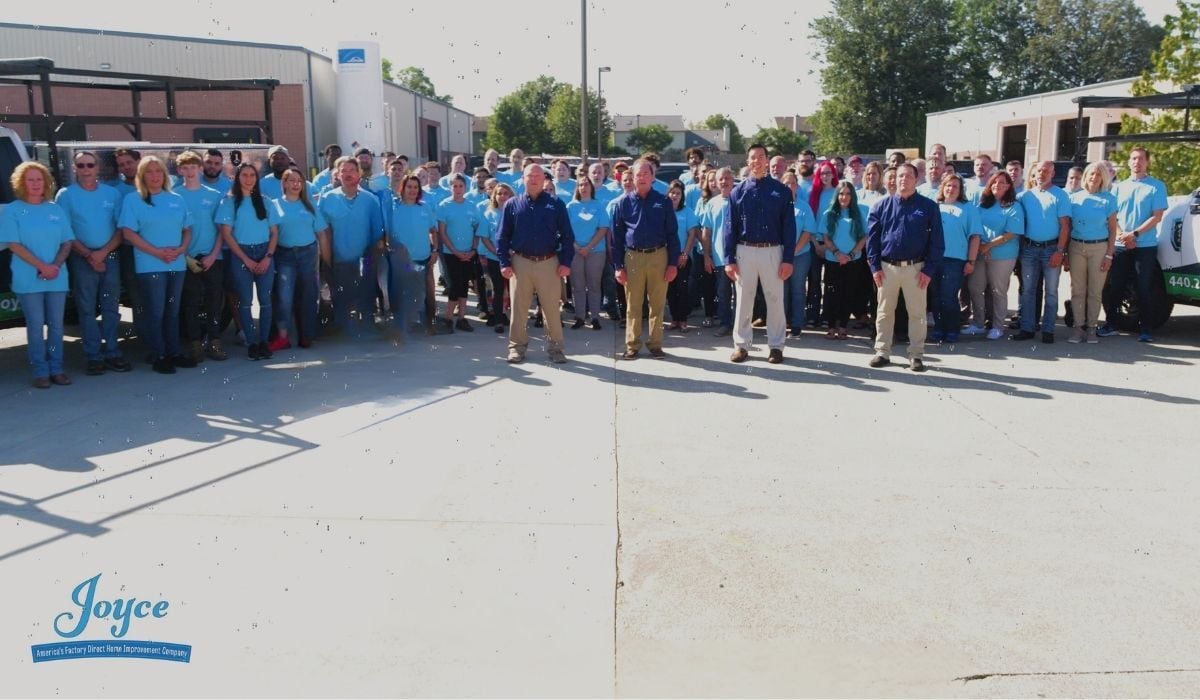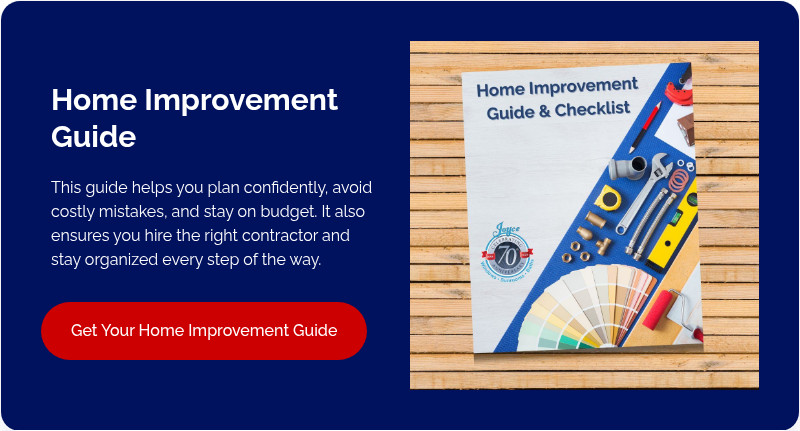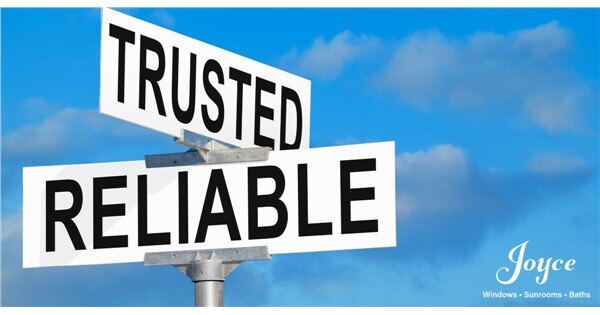Who Really Owns Your Remodeler and Why It Matters for Your Project [Renovo’s Collapse]
November 7th, 2025
4 min read
By Shari Rogala

Home improvement companies are owned and run in very different ways. Some are locally owned or family-led and grow through reputation, long relationships, and the steady work of doing right by customers. Others are built as investment “platforms”, private equity firms, that bring several regional brands under one parent company, allowing them to expand faster and operate at scale. For years, we’ve watched investors consolidate local remodelers under national brands.
One model is necessarily good and the other is bad; it’s about understanding who or what is behind the company you choose for your project and how that ownership can shape your experience as a homeowner. The collapse of Renovo Home Partners serves as a poignant reminder of why ownership matters.

What Happened with Renovo
In late October 2025, news broke that Renovo Home Partners had ceased operations across several of the brands it had acquired. Although we do not serve the same markets as those closures and were not directly affected by them, many homeowners across the country saw the headlines and asked a fair question: why did this happen, and what does it say about ownership?
Renovo Home Partners was formed in 2021 - 2022 by Audax Private Equity, bringing together several trusted regional home-improvement companies: NEWPRO, Dreamstyle Remodeling, Alure Home Improvements, Reborn Cabinets, Minnesota Rusco, Woodbridge Home Solutions, and Remodel USA. Each of these companies had deep local roots, decades of history, and a proud reputation among homeowners.
But in late October 2025, news spread that Renovo had abruptly shut down operations. Thousands of employees were suddenly out of work, and customers were left wondering who would finish their projects or honor their warranties. Brands that had served homeowners for generations, like Minnesota Rusco, a 70-year-old company, closed their doors overnight. Even NEWPRO, one of the largest remodelers in the Northeast, went dark with little warning.

The Private Equity Connection
If you’re new to these terms, a private equity firm is an investor that raises money from institutions and individuals to buy companies, improve them, and eventually sell them at a profit. Private equity can bring professional management, shared services, and capital for growth. It can also add debt and performance targets that drive faster changes. A “platform” is simply a parent company that acquires several businesses in the same category - windows, baths, roofing - and coordinates purchasing, marketing, and operations. None of this is automatically negative. Many PE-backed firms deliver good service. The key is to understand who owns the company, who holds the financing, and who stands behind your product and workmanship warranties if things change.
Renovo began under Audax Private Equity’s ownership. Still, by 2024, its financing and control were tied to BlackRock TCP Capital Corp. (TCPC), a business development company whose investment adviser is part of BlackRock, Inc., one of the world’s largest asset managers with over $13 trillion in assets and a market capitalization of nearly $170 billion. TCPC later reported Renovo’s loans as being on 'non-accrual' status, indicating financial distress before the shutdown. Over time, financing and control also involved institutional lenders. When performance and debt pressures intensified, the parent company closed, and long-standing local names disappeared abruptly.
In plain terms, decisions that once belonged to families and local leaders had moved to corporate offices and financial institutions. And when the numbers no longer worked, thousands of livelihoods, customer projects, and warranties were wiped away with a spreadsheet decision.
The Human Impact
The ownership structure is evident in day-to-day details that matter to you. If decisions are local, the people who quote your project are often the same people you can find after the job, because they live and work nearby. If decisions are centralized, you may reap the benefits of scale, but you might also see policies and priorities set by individuals who are not directly involved in your community. When a parent company changes direction or closes a division, customers can be left with questions about timelines, service, or warranty handling. That uncertainty is what made the Renovo story so visible, even in markets like ours that were not part of the shutdowns.
We’ve been in this business long enough to know that a home-improvement project is never just about materials; it’s about trust. When companies close without warning, homeowners are left stranded, and workers lose not just a paycheck but a piece of their identity. For families who poured generations of effort into these brands, the loss runs deeper than balance sheets.

Why Local Still Matters
When evaluating contractors, it's helpful to ask straightforward, practical questions in clear, everyday language. Who currently owns the company, and how long have they owned it? Who finances the business, and what happens to my contract and warranty if ownership changes? Who will install my project, and who will honor the warranty - both product and labor - over the long term? If a parent brand changed or closed, who would complete my job? These questions are not meant to scare you; they are intended to provide clarity, allowing you to make a confident decision.
Our perspective stems from many decades of serving homeowners directly. We have remained locally led since 1955 because we believe that proximity and presence matter. We see our work everywhere, from the way to the grocery store to our kids’ schools and the neighborhoods where we live. That closeness keeps our focus on long-term relationships rather than short-term reporting. It also means that when something isn’t right, you know where to find us and we know how to make it right.
A Lesson in What Endures
Private equity and roll-ups will continue to be part of the home improvement landscape, and many will deliver acceptable results. The lesson from Renovo’s collapse is not that investment firms are inherently harmful; it is that the farther ownership sits from the community, the more fragile the community connection can feel when pressure mounts. If you know who owns the company, who makes the decisions, and who stands behind the work, you can choose a partner with eyes wide open, whether that partner is a family-led firm or a platform brand. Our commitment is to maintain that connection, to earn your trust slowly, and to be here when you need us tomorrow.
We’ve stayed family-owned for decades because we believe homeowners deserve partners, not portfolios. We care more about our reputation than market share, and we plan to be here for generations to come, because we answer to you, not investors.
If you’d like a partner with deep, hands-on expertise and clear, local accountability, we’re here to help. Since 1955, Joyce has designed, installed, and stood behind windows, baths/showers, sunrooms, and doors. We make the process easy with free, no-pressure design consultations for every product. We’ll bring samples, answer your questions in plain language, and provide a detailed quote so you can make an informed decision with confidence.
Shari Rogala is the Marketing Content Manager at Joyce Windows, Sunrooms & Baths, where she brings near two decades of experience in customer-first marketing strategy and home improvement communications. With a passion for helping homeowners make confident, informed decisions, Shari specializes in creating clear, educational content that cuts through industry jargon and high-pressure sales tactics.
Topics:


